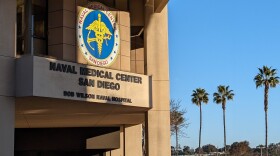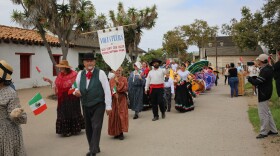TUCSON – About thirty thousand people crowded onto the University of Arizona campus Wednesday afternoon to hear President Barack Obama speak at a memorial honoring the victims of Saturday's shooting. Not everybody was able to attend the event. To pull it off smoothly, some people had to work overtime.
Wearing a bright red t-shirt, Rick Harball spent the day directing traffic and making sure crowds of people walked to where they were supposed to: the massive stadium that towers over the U of A. He's philosophical about his job on this day, the closest he's ever come to seeing the president. Still, someone needed to make sure this last minute presidential visit went smoothly.
"Well, I wish I could attend the event itself," Harball said. "But I'm proud, I mean that I'm so near an event like this. It's a good day to be an American today. Just try to help out as much as we can."
The president met with Representative Gabrielle Gifffords' family and the families of those wounded and killed in Saturday's shootings.
The attacks left Tucson stunned but by Wednesday there were signs of hope.
"I see the enthusiasm from everybody, that's what I like," said Harball as he stopped the long line of people to let another car through.
Mark Hansen stood in line for four hours, he was hoping for words of inspiration.
"And hopefully it won't be anything political," Hansen said. "Just something that's inspirational honoring the victims as it should and hopefully will minimize the invidious polarization that has pervaded our climate."
By 5 p.m., the crowd was moving quickly, the long line wending its way to the McKale Center, the overflow, to the stadium.
Harball was finishing up for the day.
"Yeah, I'm gonna try to go home and watch it," he said.
During the memorial, Obama delivered the news: Giffords had opened her eyes.






